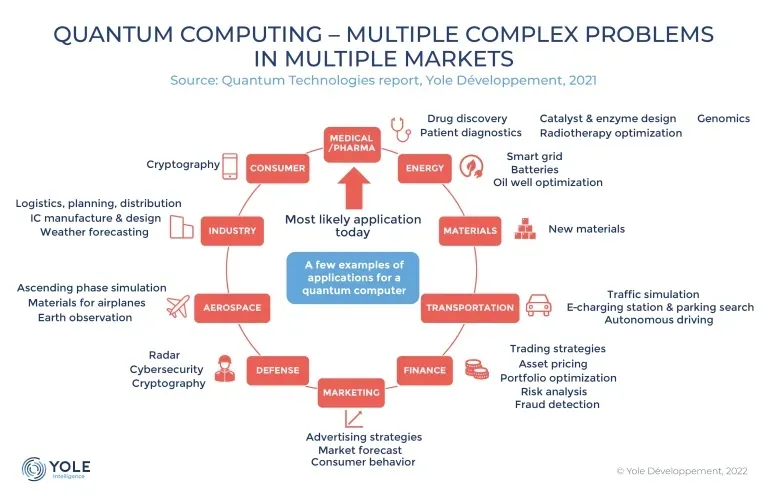
Quantum computing has captured the attention of scientists, engineers, and tech enthusiasts due to its groundbreaking approach. Unlike classical computers, which rely on binary bits, quantum computers use quantum bits or qubits, which harness the principles of quantum mechanics to process information. This departure from conventional computing opens up a new realm of possibilities, allowing for the solution of complex problems that were once thought to be unsolvable.
Today, quantum computing stands at the cutting edge of technological and scientific advancement, with ongoing breakthroughs continually pushing boundaries. Beyond computation, quantum technologies are also making strides in areas such as quantum communication, cryptography, and sensing—offering innovative ways to secure data and deepen our understanding of the universe. As quantum hardware becomes more widely available, a dynamic ecosystem of startups, researchers, and institutions is accelerating the development of the field.
According to a study by Yole, some of the most promising real-world uses for quantum computing are illustrated in Figure 1. Among these, drug discovery in the pharmaceutical industry currently attracts the most interest. However, widespread adoption of quantum computing in medicine and pharmaceuticals is still expected to be several decades away.

Figure 1: Key sectors where quantum computing is expected to have a significant impact
(Source: Yole)
Following its adoption in the pharmaceutical sector, quantum computing is expected to gradually be implemented in other industries such as energy, chemistry, transportation, banking, and finance—though widespread use in these fields is likely to take another decade or more.
Quantum computing is rooted in key principles of quantum theory, including superposition, entanglement, and interference. Superposition allows particles to exist in multiple states simultaneously. Entanglement creates correlations between particles regardless of the distance between them. Interference enables these quantum states to amplify or negate one another, significantly impacting computation.
Current Landscape of Quantum Computing
Quantum computing has evolved from theoretical discussion to tangible technological progress. In recent years, considerable advancements have been made in building viable quantum systems.
Key Developments in Quantum Hardware:
- Superconducting Qubits: A leading technology in quantum computing, superconducting qubits—often made from niobium—are cooled near absolute zero to exploit their quantum properties. Major players such as IBM, Google, and Rigetti have successfully developed superconducting quantum processors.
- Trapped Ion Qubits: This approach involves manipulating ions with lasers and electromagnetic fields. Companies like IonQ and Honeywell have made significant strides in this space, showcasing high-fidelity operations and promising error-correction capabilities.
- Topological Qubits: Spearheaded by Microsoft, this innovative technique uses non-abelian anyons—exotic particles that encode quantum information with built-in error resistance. This form of qubit holds promise for more stable quantum systems.
As quantum hardware progresses, so too does the development of quantum software and algorithms, which serve a wide range of applications:
- Shor’s Algorithm: Enables efficient factorization of large numbers, posing a serious challenge to current encryption systems.
- Grover’s Algorithm: Offers quadratic speedups in database searching and optimization.
- Quantum Simulation: Especially valuable in materials science and pharmaceuticals, simulations on quantum systems can lead to breakthroughs in drug discovery and advanced materials.
Quantum computing also requires a fundamentally different software infrastructure from classical computing. Currently, two main trends are observed:
- Major tech firms are creating proprietary programming environments tailored to their quantum systems.
- New startups are building hardware-independent platforms that can operate across different quantum technologies, including those developed by IBM and Google.
Challenges in Quantum Computing
Despite rapid progress, quantum computing still faces considerable technical hurdles. Quantum systems are extremely delicate and highly susceptible to noise and errors, necessitating robust error correction and hardware innovation. Developing practical quantum algorithms that solve real-world problems remains a major research focus.
Nobel laureate Alain Aspect, recognized for his contributions to quantum mechanics, identifies two primary challenges:
- Decoherence, linked to the difficulty of isolating and cooling atoms.
- Scalability, particularly the ability to connect any two qubits efficiently within a system.
He remains optimistic, noting these are engineering challenges—not fundamental impossibilities. To make quantum computers commercially viable and cost-effective, three more issues must be addressed:
- Implementing surface code error correction to stabilize quantum states.
- Creating hardware-agnostic software that can function across different quantum platforms.
- Designing advanced control electronics and cryogenic systems to manage individual qubits.
Quantum hardware demands extreme design precision to maintain qubit stability, often requiring cryogenic dilution refrigerators to reach near-zero temperatures. Interfacing quantum devices—operating at such low temperatures—with room-temperature control electronics is particularly complex. Future quantum processors may contain over a thousand qubits, requiring dense and thermally efficient wiring solutions.
Figure 2 illustrates a quantum computer’s structure, highlighting the complex interconnections necessary. While coaxial cables suffice for limited qubit systems, scaling up necessitates more compact and thermally optimized wiring solutions.

Figure 2: A quantum computer with some connections highlighted
(Source: Delft Circuits)
Future Directions in Quantum Computing
Although substantial milestones have been reached, quantum computing still faces significant hurdles. Key areas for future development include:
- Error Correction: To build scalable and reliable quantum systems, sophisticated error-correcting methods must mitigate the effects of decoherence and external interference.
- Quantum Advantage: Also known as quantum supremacy, this refers to the point where quantum computers outperform classical systems in meaningful tasks. Achieving this requires continued innovation in both hardware and algorithm design.
- Artificial Intelligence: Quantum computing holds promise in enhancing machine learning and AI, enabling faster and more efficient problem-solving in complex domains.
- Quantum Cryptography: Leveraging principles such as entanglement, quantum communication could revolutionize cybersecurity. Initiatives like building a quantum internet and secure channels are at the forefront of this effort.
Security is a critical concern. When quantum computers can reliably run Shor’s algorithm, they will be capable of breaking widely used cryptographic systems—including RSA and ECC—by efficiently solving problems that underpin current encryption.




